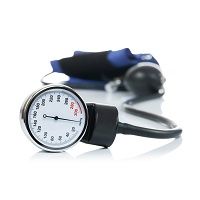Article
Treated Blood Pressure Impacts Risk of Cardio Renal Events
Author(s):
A recent study from South Korea is shedding light on the association of blood pressure levels and cardiorenal events.

A new study from the Kangwon National University Hospital in South Korea is giving physicians a better understanding of how treated blood pressure is associated with critical cardiorenal events and mortality rates in patients with anti-hypertension medications.
Results of the study, which included more than 25,000 patients, suggest intensive blood pressure control is appropriate for reducing all-cause mortality and cardiorenal risk in patients.
Using the National Health Information Database in Korea from 2002 to 2015 and 2006 to 2017, investigators sought to determine whether optimally treated blood pressure was associated with differing rates of critical cardiorenal events in high- and low-risk patients. From the database, a population of 1,402,975 adults between the ages of 40 and 79 with no known cardiorenal disease were included in the study. The primary cohort of the study consisted of 487,412 participants while the secondary cohort was comprised of 915,563 participants.
Blood pressure was measured during health greens and participants treated and untreated blood pressure records were collected separately — investigators noted blood pressure thresholds for adverse outcomes have been known to differ substantially between treated and untreated patients. Investigators defined treated as receiving antihypertensive medication for more than 90 days in the past year and untreated was defined as less than 90 days.
A total of 5 different risk factors were included as outcome for screening purposes. Those factors included diabetes, hypertension, hyperlipidemia, proteinuria, and active smoking. Study outcomes were identified through December 31, 2015 in the study’s primary cohort and through December 31, 2017 in the secondary cohort.
A total of 225,103 patients in the primary cohort and 360 503 of 915 563 participants (50.1% male; median [interquartile range] age, 52 [46-60] years) in the secondary cohort received antihypertensive treatment. The median age in the primary cohort was 54% men and the median age was 50 years, while the median age of the secondary cohort was 52 years and 50.1% were men.
Upon analyses, investigators identified 28,411 of 51,292 cardiorenal events and 33,02 of 72,500 deaths in ever-treated participants. An absolute increase in cardiorenal and mortality risk were associated with inadequately treated BP was more common in patients with multiple risk factors. Additionally, hazard ratios (HR) for critical cardiorenal events increased as the treated systolic BP increased to more than 130 to 140 mm Hg.
HR for all-cause mortality among patients with 3 or more risk factors and treated systolic blood pressure within the range of 110 to 119 mm Hg was 1.21 (95% CI, 1.07-1.37). For 130 to 139 mm Hg the HR was 1.04 (95% CI, 0.98-1.11), 1.12 for 140 to 149 mm Hg (95% CI, 1.05-1.20), 1.21 for 150 to 159 mm Hg 1.21 (95% CI, 1.11-1.32), and 1.46 for 160 mm Hg or greater (95% CI, 1.32-1.62) when compared to high-risk patients with a blood pressure of 120 to 129 mm HG.
Among participants with 1 or fewer risk factors and treated systolic blood pressure in the range of 110 to 119 mm Hg, the hazard ratio was 1.14 (95% CI, 1.07-1.22). In those with blood pressure between 130 to 139 mm Hg the HR was 0.97 (95% CI, 0.93-1.02), 1.00 when blood pressure was between 140 to 149 mm Hg (95% CI, 0.91-1.09), 1.06 with blood pressure between 150 to 159 mm Hg (95% CI, 0.99-1.14), and 1.26 when 160 mm Hg or greater (95% CI, 1.15-1.37).
This study, “Association of Optimal Blood Pressure With Critical Cardiorenal Events and Mortality in High-Risk and Low-Risk Patients Treated With Antihypertension Medications,” was published online in JAMA Network Open.





